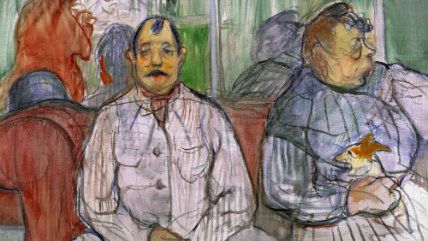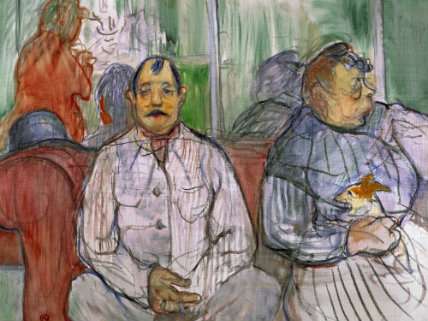Cook County Sheriff Tom Dart Creating National Database of Sex Buyers
"We are well on our way to developing...new ways to change their behavior."


Cook County's Tom Dart, the prostitution-obsessed sheriff who launched a national month of police playing sex workers to arrest "johns" and unconstitutionally threatened Visa and Mastercard for doing business with the ad-site Backpage, has found a new way to threaten people's privacy, screw over sex workers, and grow the police state. The latest Dart-led initiative involves creating a national database of prostitution customers, using solicitation-arrest data submitted by cops through a phone app.
Demand Abolition—a Massachusetts-based advocacy group that recently gave Boston Police $30,000 to look into new strategies to target prostitution customers—reported on Sheriff Dart's new plot in a late-August post crowing that "1,300 sex buyers—a record—were arrested across 18 states in just one month" of Dart's National John Suppression Initiative. Now, the sheriff is using data from that sting to start a national database of people arrested for soliciting prostitution. You know, for research purposes.
"We are well on our way to developing a stronger, more nuanced understanding of who buyers are—information that can be used to find new ways to change their behavior," Demand Abolition chirps.
This year's sex stings led to an "unprecedented level of buyer data collected, and shared, by this year's arresting officers," notes Demand Abolition. This is thanks to a new app that streamlines the logging of prostitution arrest information.
The app was developed at a January "social justice hackathon", in which a hundred or so techies were presided over by a team of anti-prostitution zealots from across the country—including Dart, Boston Mayor Marty Walsh, and Seattle-area prosecutor Val Richey (for more on Richey's work, see my recent series of stories on Seattle prostitution busts). The presumably well-intentioned developers and data scientists were told their work would help put an end to human trafficking, but the tools they developed are designed for police to target and track adults engaging in consensual prostitution.
The January hackathon, funded by Thomson Reuters' Data Innovation Lab, gave birth to what Demand Abolition is calling an "arrest app," which "allows officers to easily log arrest info into a national database, which Dart's team can then use to identify trends in buyer demographics." During the last John Suppression Initiative, cops logged info from 80 percent of all arrests into the database.
Keeping the personal info of people arrested for prostitution-related charges in one handy national database might help with whatever new Vice-Squad-on-Steroids agenda that Dart is designing. But it's obviously worrisome from a privacy perspective. Keeping all that sensitive information in one place would seem to make it a ripe target for hackers, but nowhere do Demand Abolition or Dart even mention cybersecurity.
It's also important to note that the people being logged in the database have merely been arrested for, not convicted of, any crimes. Yet the arrest app isn't concerned with case outcomes. If police arrest someone and the charges are later dropped or beat, that person will still be counted in Dart's database as having been picked up in a sex sting.
I reached out to the Cook County Sheriff's Office to get more details about the app and database—what security measures are in place, whether the info collected is subject to public-records requests, etc.—and will update if I hear back.
Update: Cook County Sheriff's Office Press Secretary Sophia Ansari said no individual names or case numbers will be entered into the database. "Demographic information entered includes age range, race, marital status and education level–but that information is never connected to an individual or a number that could be connected to an individual," Ansari said in an email. Nor does the database reflect what ultimately happens with cases. It's meant to simply track info on solicitation arrests and not any subsequent outcomes of those cases.


Show Comments (71)